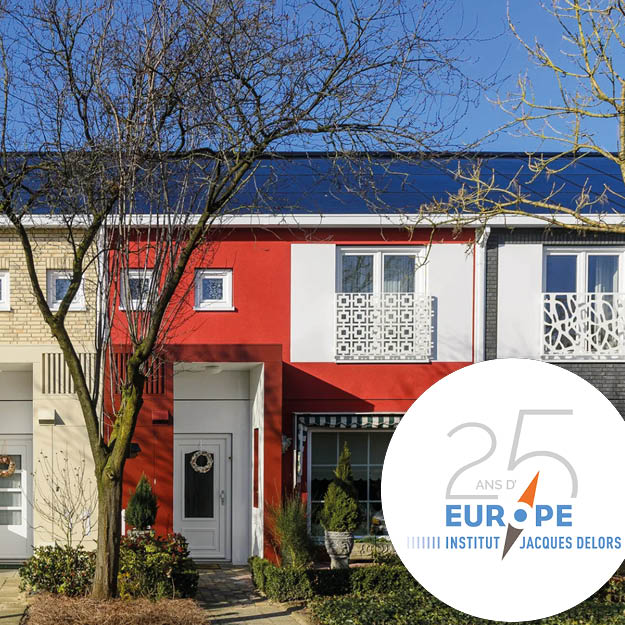Les normes minimales de performance énergétique: une réponse à l’urgence climatique et sociale

Cet automne 2021, la COP26 a déçu les espoirs d’une action mondiale ambitieuse pour le climat. Pourtant, la hausse vertigineuse des prix des combustibles fossiles dans l’UE aggrave la précarité énergétique et accroit la nécessité d’accélérer la transition écologique. La révision imminente de la directive sur la performance énergétique des bâtiments offre à l’Union européenne l’opportunité de faire d’une pierre deux coups, en répondant simultanément à l’urgence climatique et à l’urgence sociale. Le secteur du bâtiment est à lui seul le plus grand consommateur d’énergie dans l’UE, représentant 40% de notre consommation énergétique.
Les objectifs climatiques de l’UE requièrent un parc immobilier zéro-émissions d’ici 2050. Le succès de la décarbonation des bâtiments repose sur le déploiement massif de techniques et produits existants : rénovation performante, systèmes de chauffage efficaces alimentés par des énergies renouvelables, ou encore produits financiers et assurantiels garantissant des rénovations de qualité.
Cependant, les responsables politiques européens comme nationaux n’ont jusqu’à présent pas réussi à accroître le rythme et la performance des rénovations énergétiques. Malgré une attention accrue aux nombreux bénéfices de l’efficacité énergétique, la plupart des bâtiments européens restent des passoires énergétiques. Dans le cadre de sa stratégie pour une Vague de rénovation, la Commission européenne a annoncé une révision de la directive sur la performance énergétique des bâtiments en décembre 2021, soit cinq ans avant la date prévue initialement. Il s’agit d’une opportunité unique pour l’UE d’améliorer la qualité de vie de millions d’Européens.
La Commission européenne devrait profiter de cette révision pour introduire des normes minimales de performance énergétique susceptibles de répondre au manque d’information des citoyens et des élus, de donner de la visibilité juridique aux professionnels et d’inciter à rénover. Face au défi de la décarbonation des bâtiments, l’UE est de donner aux acteurs de la transition énergétique plus de visibilité sur les objectifs à poursuivre sur le long-terme (neutralité carbone d’ici 2050) et sur la manière d’y parvenir (trajectoires de décarbonation). Les normes minimales de performance énergétique obligeraient les bâtiments à atteindre des seuils minimums à une date butoir ou à un moment propice (tel que la vente ou le changement de locataire). Elles garantiraient l’atteinte d’un certain niveau de performance suite à la rénovation, et permettraient de lier soutien public au respect des normes. L’ambition de ces normes minimales de performance énergétique dépendra du parc ciblé, des délais de mise en conformité et des niveaux de performance.
Ces normes minimales sont essentielles pour créer un marché de la rénovation performante, indispensable pour atteindre les objectifs climatiques européens. Ceux-ci requièrent en effet une réduction drastique des émissions de gaz à effet de serre du secteur du bâtiment, qui en retour pourrait contribuer à une plus grande justice sociale par l’éradication de la précarité énergétique. Afin d’en maximiser les bénéfices, les normes minimales de performance énergétique devraient couvrir tous les segments du secteur du bâtiment (public et privé, résidentiel et de service) et fixer des mesures assurant l’objectif à long terme d’un parc résidentiel décarboné en 2050. Cette note se concentrera sur le secteur résidentiel qui représente 70% des émissions des bâtiments, mais qui n’est toujours pas suffisamment pris en compte par les politiques européennes et nationales.
Ce policy brief présente d’abord les raisons pour lesquelles il faut massifier la rénovation performante ainsi que les obstacles rencontrés. Il aborde ensuite les normes minimales de performance énergétique comme un outil essentiel permettant de créer une demande stable pour l’industrie de la rénovation ainsi que de débloquer les synergies entre action climat, meilleure qualité de vie et justice sociale.




